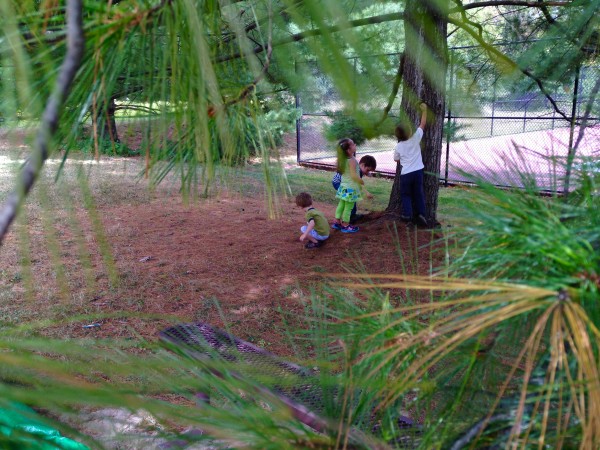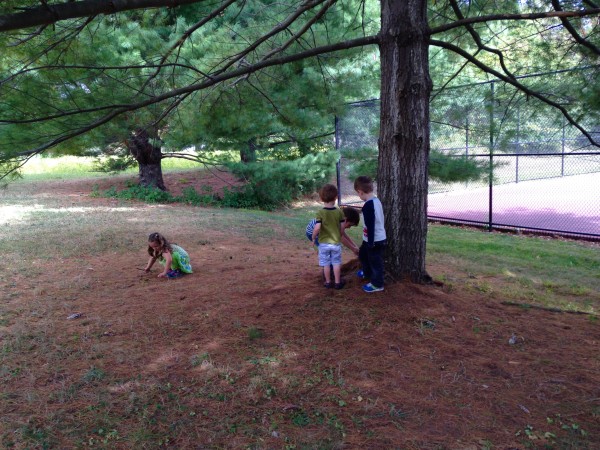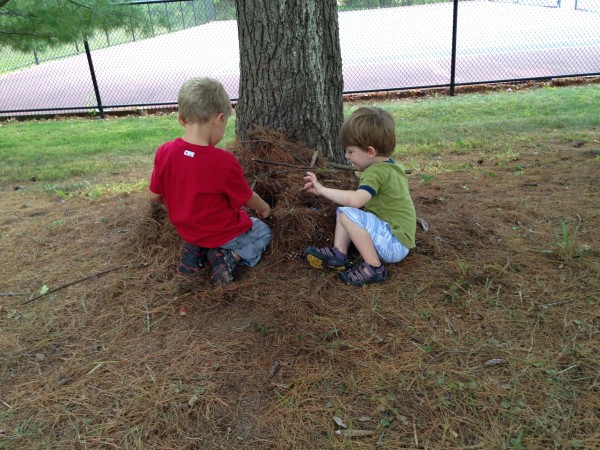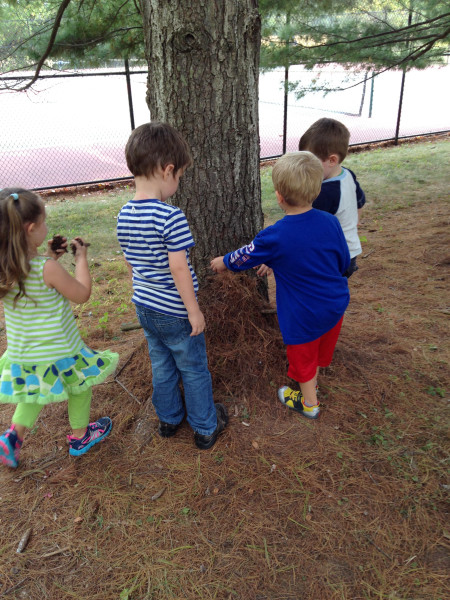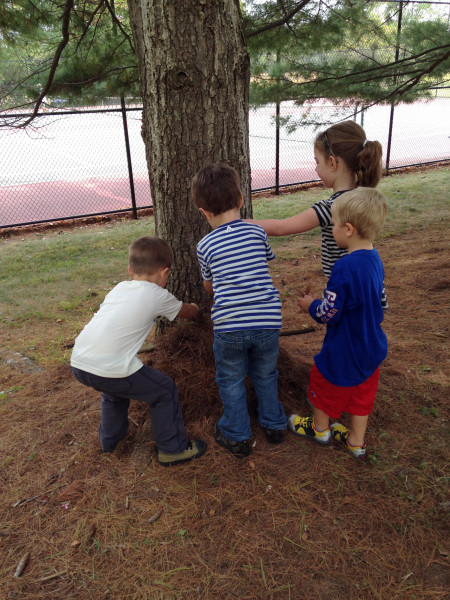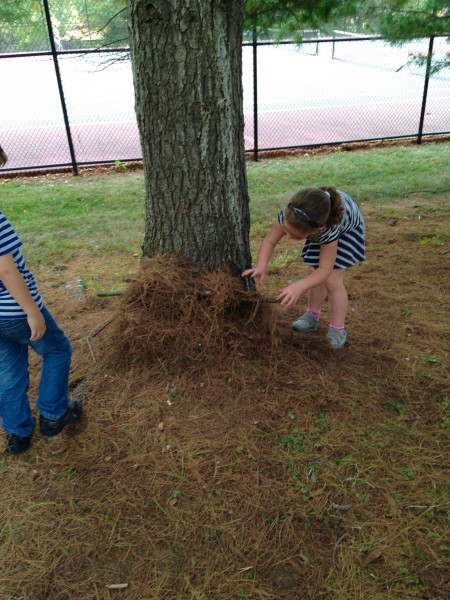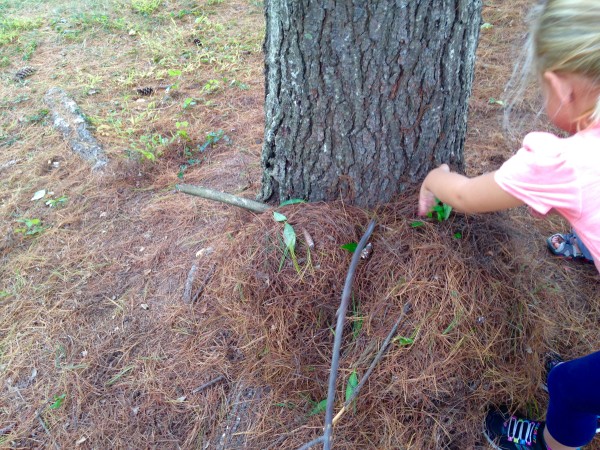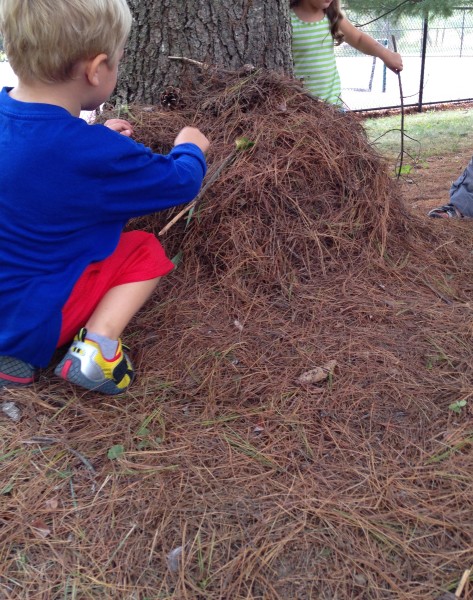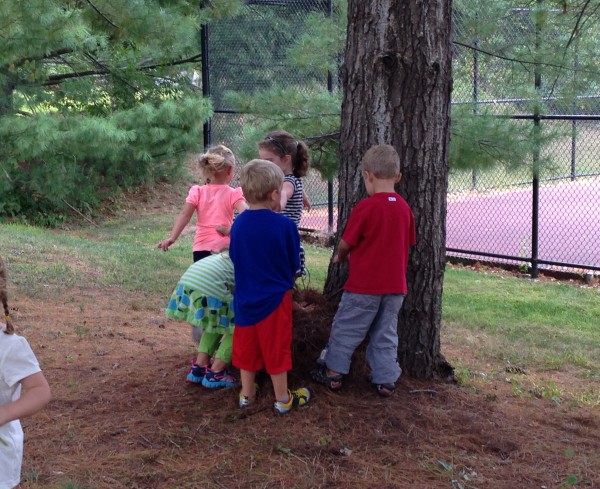Kindergarten Readiness
I have been teaching for over 30 years, and a parent for over 27 years. I’ve seen the “best” way to educate children change several times. The past few years I’ve seen academic pressure put on children like never before.
Something people forget: Four year olds were only born 48 months ago. For approximately 24 of those months, they didn’t speak in complete sentences. How can anyone insist that they should be reading and writing only 24 months later or even 36 months later? Even worse, I’ve seen pressure for three year olds to read and write their names! (Yes, some children can. However, some children can’t read comfortably until second grade, then they excel!)
The alphabet and numerals are tools we use to share information and ideas. Before a child can share or interpret information, they have to experience life! They must touch, explore, observe, smell, and experiment with the world around them! They need to share information verbally before they can write about it!
Here is a good example of an appropriate kindergarten readiness activity:
Ok, I know what you may be thinking: How can this be kindergarten readiness? They’re playing outside!
This is a group of 3-5 year olds, many of them just met three weeks ago. Some of the children decided to build a nest on the ground. Others wanted a campfire. After some discussion (and without adult intervention,) they decided to build a nest.
Dried pine needles were piled up.
Everyone pitched in. The number of children around the tree varied. They talked, gave suggestions, argued, and came to a consensus.
This big stick is for the birds to perch on. (Not everyone agreed with the stick placement. Some children wanted it out. Others wanted it in. There was a lot of discussion (and disagreements!) about where that stick should be.)
They agreed that it needed to be “sprinkled with decorations.”
The result? A very tall, well decorated nest made cooperatively! Although it might be a sparrow’s nest… or a bald eagle’s. Or maybe they’ll share!
Now, just HOW is this kindergarten readiness? The children needed to communicate effectively, negotiate, and share information, opinions, and responsibilities. (Many adults have a difficulty with this, and these are 3-5 year olds!)
Let’s look at the New Jersey State Department of Education Preschool Teaching and Learning Standards 2014
http://www.nj.gov/education/ece/guide/standards.pdf
Here are the standards that were met:
There are five preschool standards for social/emotional development:
Standard 0.1: Children demonstrate self-confidence.
Standard 0.2: Children demonstrate self-direction.
Standard 0.3: Children identify and express feelings.
Standard 0.4: Children exhibit positive interactions with other children and adults.
Standard 0.5: Children exhibit pro-social behaviors
Speaking and Listening
Preschool Standards
Participate in conversations and interactions with peers and adults individually and in small and large groups.
- a) Follow-agreed upon rules for discussions during group interactions.
- b) Continue a conversation through several back and forth exchanges.
Language
Begin to understand the conventions of standard English grammar when speaking during interactions and activities.
b) Use frequently occurring nouns and verbs.
c) Form regular plural nouns.
d) Understand and use question words (e.g.,who, what, where, when, why, how).
e)Use frequently occurring prepositions (e.g., to, from, in, out, on, off, for, by, with).
f) Begin to speak in complete sentences.
g) Understands and can follow simple multi-step directions.
There are four preschool standards for approaches to learning:
Standard 9.1 Children demonstrate initiative, engagement, and persistence.
Standard 9.2 Children show creativity and imagination.
Standard 9.3 Children identify and solve problems.
Standard 9.4 Children apply what they have learned to new situations.
Math:
Respond to and use positional words (e.g., in, under, between, down, behind).
Science:
Standard 5.1: Children develop inquiry skills.
SOCIAL STUDIES, FAMILY, AND LIFE SKILLS
Standard 6.2: Children become contributing members of the classroom community.
“Just” playing? Absolutely not!
